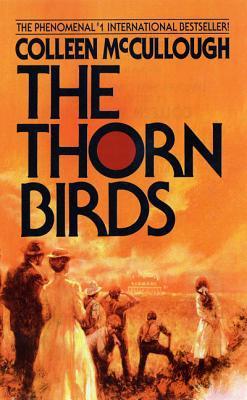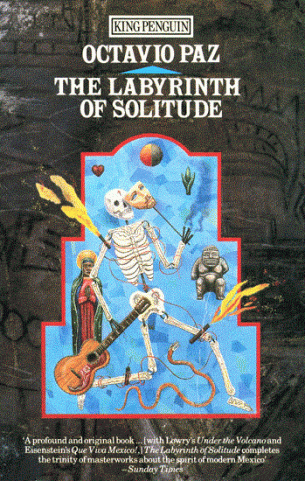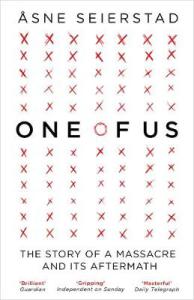3.5 stars because I can’t decide if I actually enjoyed it or if I just got sucked into the engrossing story.

My copy may have been the first mass market paperback edition. The cover price 40 years ago was $2.50. How times have changed.
On the surface, The Thorn Birds by Colleen McCullough is a sweeping historical epic filled to excess with tragedy set against the extreme backdrop that is Australia. It is not, as I’d mistakenly assumed an epic romance but rather a study in human nature. Within its pages can be found themes of religion, feminism, the mother/daughter dynamic, the effects of a patriarchal society, what defines home, and even politics.
At its best moments, the novel paints a vivid portrait of Australia’s vast and varied lands from the drought-prone grasslands to the tropical rainforests, detailing life on a huge sheep station and in the cane fields. Based on McCullough’s descriptions, I wanted to escape Northern Queensland’s suffocating humidity as much as Meggie did – not that the dry expanse of on which Drogheda lay sounded all that much better. At its worse, the story is a tortuous battle, both internal and external, between the characters and God or the elements or each other or themselves.
As for those tortured characters, I didn’t like any of them with the possible exception of Justine. Meggie is bearable though often utterly idiotic (though that isn’t entirely her fault) and much too prideful. Fee is far from an ideal mother to all of her children – even her beloved Frank – but especially to Meggie. Mary Carson is, as she is described more than once, a manipulative spider and a heartless miser. She may have claimed to have loved Ralph but if she ever had been capable of love, I don’t think she was anymore. Then there are the men. The Cleary men, except maybe Stuart, are insensitive and blind to all but their own needs – only Frank seems to have eyes in his head not that it does him much good. Ralph is arrogant, self-absorbed (and selfish), ambitious, and like the other men utterly incapable of seeing beyond himself. And then there’s Luke who represents everything I would hate in a man. I could not wait until he was out of the picture. At least through Luke, we met Anne and Luddie and we have Justine.
I actually loved Justine. I loved her hard shell and sharp tongue and I loved her vulnerable core. But that love didn’t stop me from calling her an idiot a few times before it was all said and done, which goes for Rainer too. I liked him but he was a game player when it came to Justine. All of these deeply flawed characters caused more of their own problems than either God or the elements ever could. Which, of course, is what makes it a tragedy (I paid attention in my Shakespeare classes).
Then there’s the central love story for which The Thorn Birds is famous. Despite my being Catholic the priest thing never bothered me. Nowadays a priest could, if he truly wanted to, chose to leave the priesthood. Either they couldn’t in those days or (and this is more likely) Ralph was too ambitious to even consider it. Because unlike Dane, who seems truly devoted to his God and his faith, Ralph’s devotion to the church isn’t always based on a deep and profound as he claims it to be. If he ever loved anyone more than he did himself, he would’ve made the hard decision to leave. What did bother me was the age difference. Meggie was 10 and Ralph 28 when they first met and almost immediately he became obsessed with her. It may not initially have been a sexual attraction he had for her and he was able to rationalize his attentions to her for a while but he deliberately spent more time on Drogheda than necessary until she depended on him for any love she received. Only when it became uncomfortable for him did he separate himself from Meggie and the Clearys and even in doing that he did it in a way would hurt her. Then he still, in his cowardly way, strung her along and made himself her savior. Only in contrast to Luke did I ever grow to like (that might be too strong a word) Ralph. And liking the characters is key to my enjoyment of a book like this that requires much of its readers’ heart.
If you enjoy sweeping historical epics The Thorn Birds, I don’t think I need to tell you that you will probably enjoy Margaret Mitchell’s Gone with the Wind.
Advertisements Share this:





